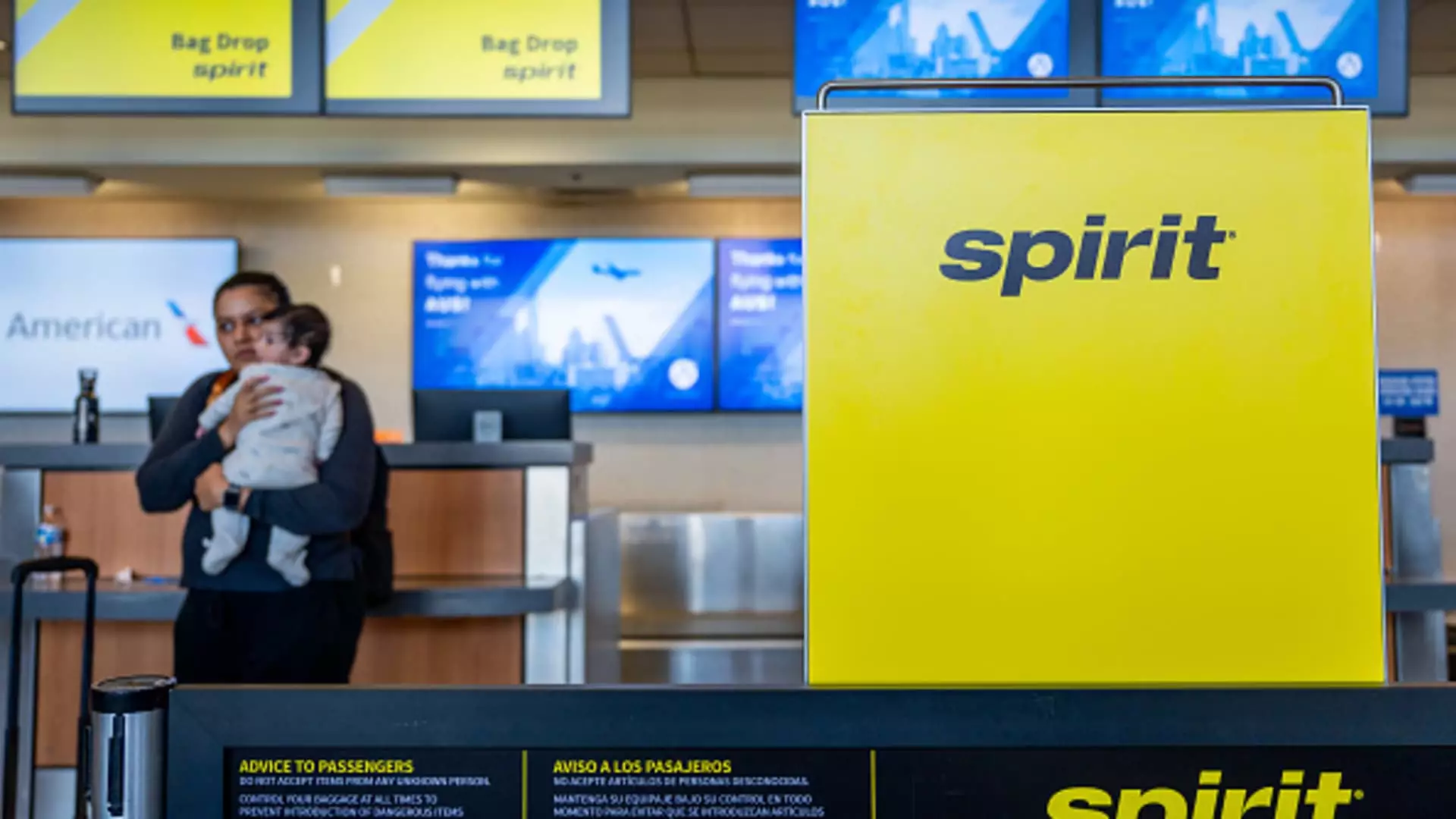The decision by Spirit Airlines to file for Chapter 11 bankruptcy protection marks a significant event in the airline industry, as it is the first major U.S. carrier to do so since American Airlines made a similar decision over a decade ago. While some might interpret this as an indication of operational failure, it is crucial to delve deeper into the implications of this move for consumers, the airline’s future, and the broader market context.
Spirit Airlines, a well-known budget travel provider, has faced escalating financial challenges since 2019, a reality that intensified due to the COVID-19 pandemic. The pandemic didn’t just dampen demand; it also resulted in soaring costs across the industry. Compounding the issue, Spirit encountered operational setbacks when many of its Airbus jets were grounded stemming from an engine recall. In addition, a significant obstacle arose when a federal judge blocked Spirit’s proposed merger with JetBlue Airways, sealing its fate in a financial quagmire.
Another layer of complexity was introduced by Spirit’s looming $1.1 billion in debt payments due in the upcoming year. The airline was facing an imposing deadline related to its credit card processing agreement, thus exacerbating an already precarious financial stance. In this context, filing for Chapter 11 bankruptcy appears to be a strategic maneuver designed to stave off total collapse while seeking a path toward reconstruction.
A Strategic Reorganization
Despite common misconceptions, Spirit’s Chapter 11 filing does not equate to closing its doors. Instead, it provides the airline with a crucial lifeline to reorganize its operations while continuing to serve customers. According to CEO Ted Christie, customers can continue their usual booking activities, utilizing loyalty points and credits without interruption, which is a vital reassurance for travelers concerned about the continuity of service.
Additionally, Spirit Airlines has secured a prearranged agreement with its bondholders for a streamlined bankruptcy protection plan, aiming to exit this process by the first quarter of 2025. The plan is intended to facilitate a streamlined restructuring, enabling the airline to emerge smaller but more efficient, akin to the paths followed by other carriers in similar situations.
For consumers, the most pressing question revolves around the security of their bookings and refunds. Spirit Airlines’ bankruptcy does not void customer bookings. However, it does introduce some complexities regarding refunds in case of cancellations or significant schedule changes. The Department of Transportation (DOT) stipulates that an airline must provide a cash refund if it cancels a flight without alternative rebooking. Yet, amidst bankruptcy, there may be delays or restrictions on refunds as the airline seeks to conserve resources.
Travel expert Henry Harteveldt emphasizes the necessity for travelers to monitor Spirit’s scheduling closely, noting that while significant cuts may not be immediate, they are likely forthcoming. For the holiday season, which is paramount for revenue generation, Spirit is expected to retain most of its flight schedule, but the landscape may shift rapidly afterward.
In light of these developments, travelers are advised to take proactive measures to protect themselves financially. Utilizing credit cards for airline ticket purchases can provide additional protection compared to debit cards, particularly under the Fair Credit Billing Act. If a flight is canceled or altered significantly, consumers’ credit cards may facilitate refunds if the airline fails to comply.
Furthermore, those apprehensive about potential issues may consider booking refundable tickets with alternative airlines, although this can lead to increased costs. Travel insurance is another avenue worth exploring, particularly as it may cover pre-paid expenses in the event of bankruptcy-related disruption.
The Future of Spirit Airlines and Industry Dynamics
As Spirit Airlines navigates its path through Chapter 11, the future landscape of the carrier and, indeed, the airline industry invites speculation. If it manages to emerge successfully, it could serve as a case study for similar low-cost carriers facing financial turmoil. Also, with the ongoing pressure on airlines to maintain operational capacity amid reduced fleets, there may be interest from other airlines in acquiring parts of Spirit’s assets once the restructuring is complete.
While Spirit Airlines’ Chapter 11 filing is undoubtedly a serious situation, it presents an opportunity for strategic reorganization. Travelers must remain vigilant and proactive during this process, understanding their rights and protecting their investments, while the airline industry, as a whole, watches closely as Spirit seeks to redefine its future.


Leave a Reply